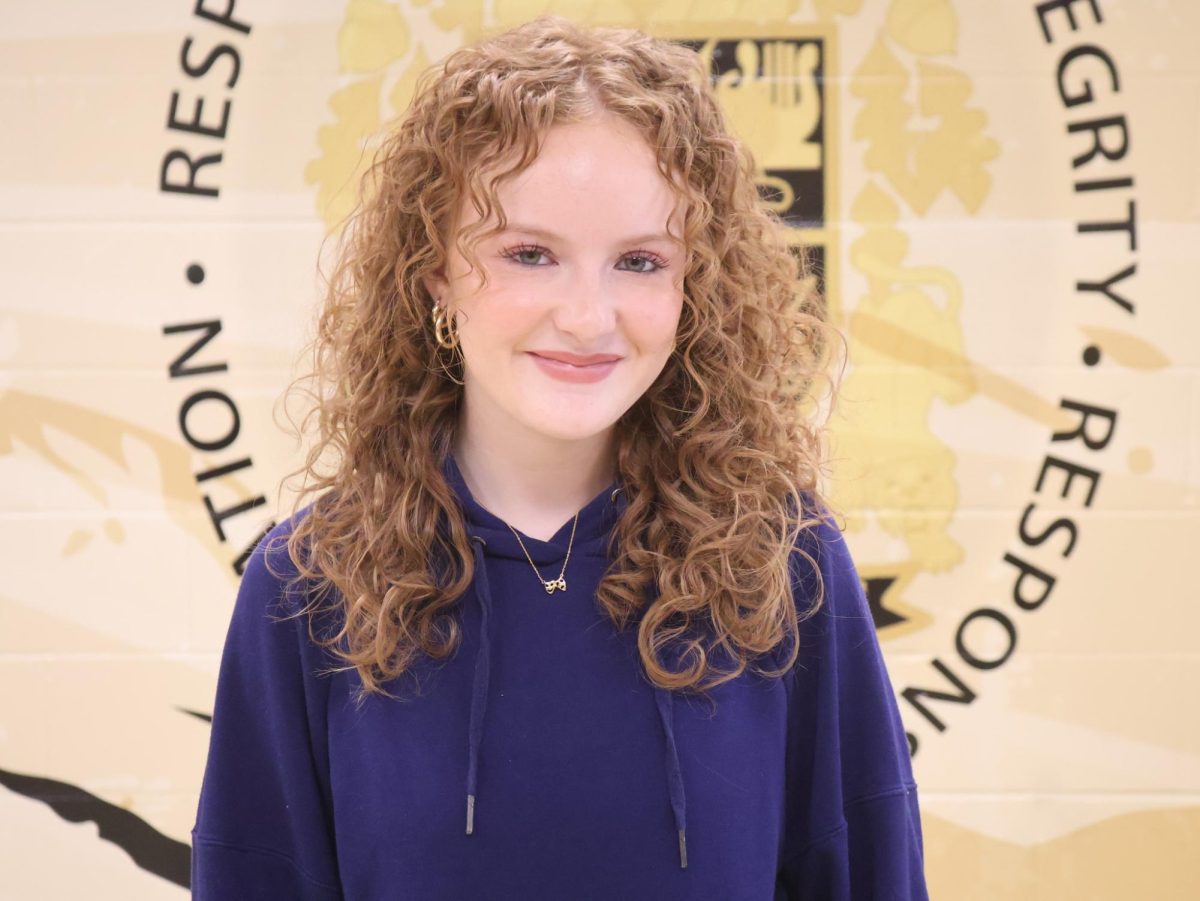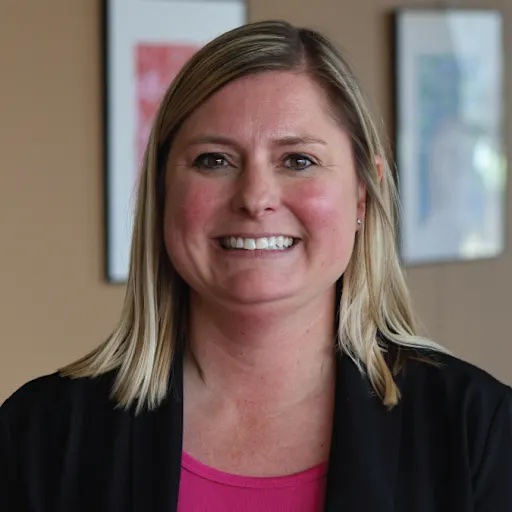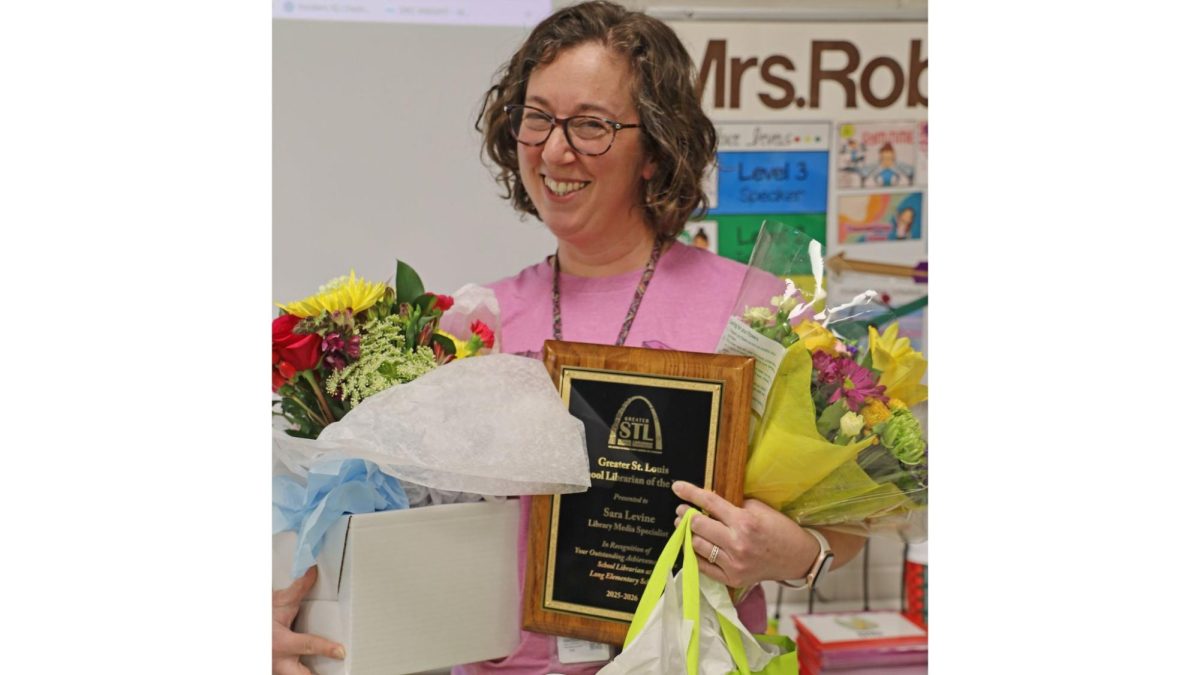Mick Johnson Jr., Megan Paule, Serene Wilkinson and Ann Zimpfer – all newcomers to public office – are seeking to fill the two open seats on the Mehlville School District Board of Education.
The seats up for election are currently held by Scott Huegerich and Grace Wright, who did not seek reelection. Both positions are three-year terms.
Election Day is April 8.
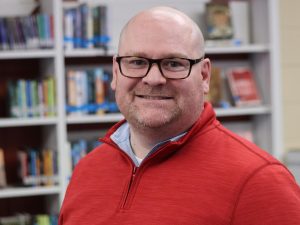
Mick Johnson Jr. is a sales manager. He is married to Erin Johnson and together they have one child, Alexis, who attends Rogers Elementary School.
When asked why he is seeking office, Johnson said: “Increasing early childhood development to full time employees. Also, conduct a responsible spending plan using my business background.”
Megan Paule is a human resources generalist at Pi Beta Phi Fraternity.

When asked why she is seeking office, Paule said: “To be student and staff focused, while listening to what the community/parents want for our district. I grew up in the district and want what is best for our students by ensuring their safety, mental well-being and academic achievement.”
Serene Wilkinson is a licensed clinical social worker/program manager. She leads a team at FamilyForward. She is married to Eric Wilkinson, and together they have two children: one enrolled at Buerkle Middle School and one enrolled at Forder Elementary School.
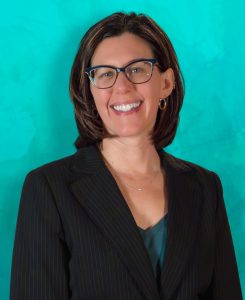
When asked why she is seeking office, Wilkinson said: “I’ve dedicated my career to supporting children and families, specializing in family care and child development. I’ve seen firsthand the challenges students face both inside and outside the classroom. I’m running to strengthen the district’s fiscal responsibility, prioritizing funding for classrooms, essential programs and the well-being of students, staff and families. My priorities include optimizing one of the lowest tax rates in St. Louis County to drive district-wide progress and addressing the whole child – academically and emotionally. I aim to foster stronger partnerships between schools, families and the community, promote anti-bullying initiatives and prioritize teacher and staff retention. With my professional background, I will facilitate constructive discussions, build consensus and bridge diverse perspectives to create a stronger, more united school district.”
Ann Zimpfer is a retired Mehlville School District teacher. She is married to Tim Zimpfer, and together they have two adult children: Ryan – who attended Trautwein Elementary School, Washington Middle School and Southview School (SSD) – and Travis, who attended Blades Elementary School, Bernard Middle School and Oakville High School.
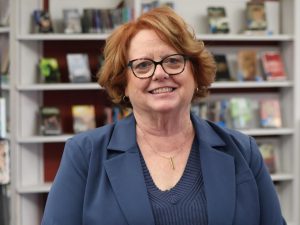
When asked why she is seeking office, Zimpfer said: “As a retired educator, I am uniquely qualified to understand the public school system. I also value our state’s responsibility to provide every student in Missouri with a free public education and enable equal opportunity for all. My experience teaching in the district provides me with strong insight into our district’s needs. I have also informed my perspective through the relationships I had with my students, their families and colleagues across the district and I want to continue to advocate for them.”
The candidates gave the following responses to The Call’s candidate questionnaire:
Editor’s note: The following questions and answers appeared in the March 27 print edition of The Call. They may have been edited and shortened for grammar, clarity and space. Keep reading for web-exclusive responses from the candidates.
What issue do you consider the single most important issue in this race?
Johnson: “Keeping competitive wages for teachers not misuse tax payer funds.”
Paule did not answer.
Wilkinson: “Supporting, advocating and uplifting public education to remain a strong pillar of our community. Mehlville is a strong district with community support, and it should remain an asset in our community. We all need to protect public education for the health and viability of our community.”
Zimpfer: “Our current board has worked diligently to provide a school environment that supports the learning of the students in the district. Like so many districts in the area and nation, retaining quality teachers is a critical issue. The district made headway in 2023 with the passage of Proposition E which ensured an increase in salary for teachers and staff.”
Other issues and your position on each?
Johnson: “Make IEP more available to families of children who need additional classroom assistance. Expand early childhood development by adding more full-time employees and locations.”
Paule: “Adapt to federal or state changes from our government. School funding formula – the state funding formula will not be met again this year. Safety is always a concern, but thanks to the community’s support, we have been able to make our schools among the safest in the country. Hiring/retaining good educators – Prop E has helped with this, but it will be important to keep an eye on this and ensure that our educators have the support they need.”
Wilkinson: “Sustaining fiscal responsibility and continuing positive district improvement: The district has been sailing a fiscally responsible ship the last 7-9 years, holding steady and supporting the district well. The recent propositions passed in 2016, 2021, and in 2023 were crucial in literally repairing and securing the ship. With the steady wind of Prop E in its sails recently, I believe the district is headed in a safe and reliable direction. I would like to continue to support the financial momentum the board has created to continue to uplift the community through the school district.
Mental Well-Being: The Student Health Services presentation in January of 2025 during the board meeting indicated 2,550 students have reported conditions within mental well-being. These reports are given at new student enrollment or continuing student enrollment when parents are registering students. With the number of students in 2024 being ~9,873, that means 25.8% of students enrolled have a reported mental wellbeing condition. With my unique and well-rounded experience with mental health, coupled with my experience implementing and sustaining state funding, I can be an advocate for mental health awareness and support in our schools. While the 25% needs our focus, so does the other 75%; they are a vital part of all of this too. We are all connected to each other in some way, so let’s normalize talking about, and sharing about, mental well being with everyone; because mental health is health. If every student feels accepted for who they are, completely, it benefits us all.
Emphasizing teacher & staff retention: Retention is affected by other factors outside of salary rates, such as: positive relationships with colleagues and leaders, career development opportunities, positive school/district culture and values, and appreciation and recognition for their work.”
Zimpfer: “Filling positions of both certified and classified employees. Maintaining the academic excellence we have come to know in the district – our current state assessment numbers were very positive in this last report. Supporting educators across the district. Maintaining student success and continue to increase focus on meaningful academics. Maintaining strong fiscal responsibility and transparency.”
Are you satisfied with the leadership of Superintendent Jeff Haug?
Johnson: “Yes, his past experience with SSD and finance with his previous job makes with an ideal fit with my vision.”
Paule: “Yes, I had the opportunity to sit down with Dr. Haug and saw firsthand how deeply he cares for the district and all the effort he puts towards the districts’ success.”
Wilkinson: “Dr. Haug has been in his position for two years so he is still relatively new to the district. The district has been able to raise its test scores and the APR under his leadership, which is a promising start. If elected, I look forward to working with him and the other board members to continue this positive growth.”
Zimpfer: “Yes. Dr. Haug is in his second year with the district. He will be leading the district through the development of the new Strategic Plan, along with his everyday responsibilities.”
Keep reading for web-exclusive questions and answers from the candidates
Editor’s note: The following questions are as they were submitted to The Call by the candidates in their entirety. They have not been edited in any way, other than to ensure appropriate language and no direct attacks on opponents or other candidates.
Do you support the Mehlville Strategic Plan? How is the district doing in following the plan? Should the district continue to follow a strategic plan in the future?
Johnson: “I agree with the plan and believe there is room for improvement in access and opportunity. We have an opportunity to improve additional classroom support.”
Paule: “I do, but there is always room for improvement. It is important to focus on the upcoming strategic plan for the next five years and to get the community’s input and implement their wants/needs more and then tailor it to the district’s needs (safety, academics, finance, facilities, etc.).”
Wilkinson: “I have read and do support the current strategic plan, and its themes of: ‘Personalized Student Preparation,’ ‘Safety,’ ‘Access and Opportunity,’ ‘Employee Support’ and ‘Being Effective and Efficient.’ Also, yes, the district should continue to follow a strategic plan. A strategic plan is important to achieve goals and improve outcomes. The strategic plan formulation is at least a year-long process of data gathering, and it relies heavily on community and parent input, coupled with the guidance of staff, administrators and the school board.”
Zimpfer: “Yes, I support the plan. The Mehlville Strategic Plan is a structured outline that sets high expectations for students, focuses on continuous improvement and ensures the district, as a whole, that this process is directed toward achieving these goals. The themes that emerged in the last plan process were for schools to be safe, learning should be personalized to meet the needs of the students, and day-to-day operations will be effective and efficient. I believe that the district is meeting these outlined goals. The district is getting ready to develop a new plan, which they do every five years. I support the development and execution of the plan.”
If additional revenue is needed for the school district, how do you propose obtaining that revenue?
Johnson: “Working on the finance committee for Prop S, we prioritized the needs of the district with the current budget. We can look at all programs to make sure we have proper spending allotted.”
Paule: “Strategic budget planning and forecasting will be essential as we develop our new strategic plan. It is important to stay proactive in seeking funding opportunities to address additional priorities while engaging the community and stakeholders involved. To obtain additional revenue, we would need to potentially increase taxes. Not saying that is what I want to do, but the state government is not funding the formula again and so the only way to increase revenue is by increasing our taxes. If our schools are good, then our property value is good, and others will want to move to our district. I would rather hear what the community wants before making any decisions.”
Wilkinson: “Missouri’s school funding formula determines state aid to school districts based on a state adequacy target (minimum cost to educate a student), student attendance and local funding capacity, with adjustments for cost of living and student needs. If an increase of funding is needed outside the current funding formula streams, I would be open to innovative ideas to increase revenue that would be suited to our district. Also, identifying areas where spending can be reduced without compromising educational quality, such as streamlining processes.”
Zimpfer: “This is difficult to answer as a ‘general’ question. The board works with the district to analyze what the best course of action is when additional revenue is needed. It is not a decision to be taken lightly or without careful review.”
Do you support the district’s decision to offer 1:1 technology/laptops?
Johnson: “I do. I would offer iPads instead of laptops as they are more user friendly to our kids.”
Paule: “Yes.”
Wilkinson: “Yes. It’s enabled all students and teachers to engage in the ever changing digital landscape.”
Zimpfer: “I do support this decision, but we need to be mindful of students/families that might not have access to internet services or support. Technology can be beneficial, but we can’t forget the personal, individualized learning that supports student success.”
How did you vote in the April 2023 election for the 31-cent operating levy increase, Proposition E?
Johnson: “Yes, I was on the committee to pass Prop E.”
Paule: “I voted yes, in support of Prop E.”
Wilkinson: “I support Prop E because this increase sends a clear message to the staff, letting them know they are seen and valued, and we have the dollars to back it up. We must support district staff to ensure retention.”
Zimpfer: “I voted yes for Prop E.”
How did you vote in the April 2021 election on the no-tax-rate-increase bond, Proposition S for Safe School, Safe Kids?
Johnson: “Yes.”
Paule: “I voted yes, in support of Prop S.”
Wilkinson: “I support Prop S because it was another way to strengthen our district as a whole. School entryway safety is vital to bolster the feeling of security for students, parents, teachers and staff. Newly renovating much needed spaces inside and outside of schools is also needed to create a more vibrant and fresh learning environment for teachers and kids. Facilities such as HVAC systems and roof projects provide a comfortable and secure building.”
Zimpfer: “I voted yes on Prop S.”
What issues do you believe the district needs to address in its academic programs and offerings? What changes would you recommend?
Johnson: “Offering more all-day options for Early Childhood Development instead of just half days. Our children need more social interaction early on in their academic careers.”
Paule: “Mehlville School District offers many different academic programs and focuses on equity, which I am in support of.”
Wilkinson: “I would need to thoroughly examine all the academic programs and offerings of our entire district to make recommendations or changes. As a parent, I know my children’s schools offer a variety of academic programs, and they have a variety of options for before-school and after-school programs.”
Zimpfer: “The school district provides programs and offerings to fit the needs of the students in the district. Currently, we have Flex, Academy, AP courses and STRETCH along with partnerships with SSD that provide academic support. Each school also provides extracurricular activities to address the interests of students in each building.”
What are areas of concern regarding student achievement in the district? Do you have specific suggestions for improvement? How can the board remain focused on student achievement?
Johnson: “We must use the information from our IEPs to offer additional classroom assistance. Additional services have become too difficult to acquire.”
Paule: “Ensure that all students are ready for life after graduation whether that involves college, trade school or whatever they choose to do. The MSIP6 (Missouri School Improvement Program) tracks this and the MSD offers a lot of AP weighted classes. It is important for me to hear what the students/parents/community have to say. The administrators and educators are doing great things with the professional learning communities, and keeping the 19 interventionists has been helpful.”
Wilkinson: “Continuing to improve test scores is an opportunity for growth for the district. Suggestions for improvement would be to ensure the board stays focused on student-centered policies. Ideas include: focus policies on student learning and growth, teacher support, review and check-in on academic progress and key initiatives and engage with educators and students to listen to their voices to stay grounded in real classroom needs.”
Zimpfer: “We know we saw some decreases in student achievement, in reference to test scores. We are already seeing those scores rebound and improve. The board will maintain its ongoing focus on student achievement. I have said it before, and I’ll say it again: student success is behind every decision made by the board, the district and the classroom teachers.”
What are the biggest challenges, short term and long term, facing the Mehlville School District?
Johnson: “Uncertainty of new administration on the federal and state levels. Increase in enrollment in schools.”
Paule: “1) After the January board meeting, mental well-being seemed to be the primary reason for nurse visits. This is something to look further into, although the district has policies and procedures in place depending on each scenario. 2) MAP test results – didn’t get the results until the next school year so educators could not help their students based on the results. 3) ESL (English as a Second Language) – I believe Mehlville High School alone has 30 different languages; it is important that these students are set up for success. 4) Strategic plan for the next five years.”
Wilkinson: “Short Term – 1) Standardizing and refining the means and methods by which staff, administrators, and parents communicate. This can boost parental engagement, thus improving the student’s success. More engaged parents have been shown to increase student achievement. 2) Bullying within our schools and ways to reduce it. 3) Addressing and supporting our students with self-reported mental well-being challenges within our schools. Long Term – Navigating the shifting climate of school funding and support policies within our region, state, and country and how this will affect our district budget and our special needs students.”
Zimpfer: “I believe the budget might be one of the biggest challenges facing the Mehlville School District. How those challenges are met depends on where the money is being spent and how we can best utilize funds to support students.”
How many board meetings have you attended in the past year? In what other ways have you been involved with the district?
Johnson: “Three. Member of committee to pass Prop E. Member of Prop S Finance Committee.”
Paule: “I found out about the two open positions in late November and have attended every board meeting since. I also have been attending as many meetings as possible to get to know the community and that the community knows my values and why I am running.”
Wilkinson: “I watched three board meetings online (September – November) and attended three in-person since the December 19, 2024, meeting. I participated in some of Mehlville’s Listening sessions in 2021 and 2022 and attended the meeting with SSD staff and the parents of Mehlville involved with SSD. My current involvement in the district involves monthly PTO meetings, PTO Trivia night planning meetings, attending the PTO events at our elementary school, as well as attending all my children’s concerts. I also volunteered recently to be a debate judge at Oakville High School in February.”
Zimpfer: “During this school year I have been to four board meetings and will attend the March meeting on the 13th.”
How would you work to keep politics out of the board’s decision-making process?
Johnson: “There is not a need for politics within the school board. I will ensure we keep discussions professional and partisan.”
Paule: “Politics are irrelevant when making decisions on the board. All my decisions will be student and staff focused.”
Wilkinson: “It is my whole-hearted intention to provide unwavering support for policies and programs that uplift and grow public education in the Mehlville School District. Using my ethical compass as a social worker, I will keep myself on a just path with the best interest of all students and staff as my north star. I will support the work of the district to continue to achieve even higher academic standards and social well-being, to shape our district into one that more families want to move to because of its schools.”
Zimpfer: “The school board is a non-partisan position. The key will always be to review the information presented and what is in the best interest of the students in the district.”
Are you satisfied with the district’s security efforts?
Johnson: “Yes. I voted in favor of school safety as the number one priority when it came to Prop S spending. We have made tremendous strides securing our schools.”
Paule: Yes. It is my understanding that all security entrances should be updated with the help of Prop S, with all first floors having bulletproof glass. Some schools are still getting security cameras installed.”
Wilkinson: “With the recent security improvements to our school’s entrances, I know, as an MSD parent, I feel much better about the security of our schools and the safety of the children in our buildings. More security upgrades will require more funding, and as culture and policies shift within our region and country about school funding, the district will have to adapt and shift its priorities about what it spends its money on.”
Zimpfer: “Yes, very much so. When Prop S was approved by voters in April 2021, the district started putting into action measures that would increase security in every building. New entryways with additional levels of entry have been built. Each school has a screening system for visitors to the building. Students and their families should have a sense of security and safety when they go to school each day.”
Should the board rely on the advice and recommendations of the financial professionals of the district’s Finance Committee to make major financial decisions, including whether to approve salary increases and budgets?
Johnson: “I would say not rely on the advice, but to consider the advice when making your decision.”
Paule: “It is important to listen to all stakeholders but focus on what the best decision is for the district (student and staff focused).”
Wilkinson: “The district’s Finance Committee is responsible for analyzing the budget and revenue streams in order to give recommendations to the entire board to make the best possible choices regarding district priorities. Decision-making about budgets is not done in a vacuum, there are processes, policies and procedures about how the yearly budgets are set. The process of planning a budget starts at least the year before and is based upon many factors. So in order to understand all those factors, we need the expertise of our CFO, combined with the expertise of our superintendent, who also served as a CFO in a previous district, as well as the other members of the finance committee to take the deep dives into the district finances. The intricate analysis of the budget is required by a separate committee especially when making major financial decisions if we want to remain fiscally responsible as a district.”
Zimpfer: “In part, yes. Recommendations from the Finance Committee are brought to the board for review. Additionally, salary increases and structure, along with district and individual school budgets, have their own structure and process.”
What is a school board member’s role and responsibility? How does that role differ from the role of superintendent or administration?
Johnson: “To make financially responsible decisions that would benefit the district the most. We need to use the additional funds the best we can and my business experiences with budget and maximizing them make me the best candidate for the board.”
Paule: “The role of the board is to govern the district while ensuring school policy is being followed. They also vote on important topics and hire the superintendent. Which I am in full support of them hiring Dr. Haug. The superintendent and the administration manages staff, oversees student discipline, allocates resources and implements new programs. Both the board and the administration work together to ensure they are reaching the district’s goals while being student and staff focused.”
Wilkinson: “A school board is a governing body focused on overseeing the superintendent of the district. As an individual member, their role is to act within the board itself, not on behalf of a specific individual’s issue, or a school specific issue. Using professional areas of expertise, together board members guide and mold policy to benefit the entire district and to support all staff and students within the district. Individual board members cannot make changes alone but alongside district staff and administration. The superintendent’s role is to oversee all aspects of its operations, compliance with policies, supervise the other administrators and assistant superintendents, use data to monitor student performance and progress and be responsible for the day-to-day operations of the district.”
Zimpfer: “The role of school board members is to hire the superintendent, set and maintain policy for the district and work with a negotiations team to ratify bargaining agreements. Board members serve as advocates for the district and make sure that decisions are made in the best interest of all students. This differs from the superintendent in the sense that a superintendent’s job is to oversee the educators in the district along with the day-to-day operations which also include schools, district staff and finances.”
How should board members make decisions on issues? Do you believe that they should always follow the recommendations of the administration? Do you believe that they should go against the recommendations of the administration? Or is there some middle ground?
Johnson: “There should be a middle ground where board members look at all information and recommendations.”
Paule: “Similar to my answer above, it is important to listen to all stakeholders involved but at the end of the day, make the decision that is best for our students and staff.”
Wilkinson: “Each board member brings a set of skills with them to the board. These can vary, but all board members are unique and professional individuals working towards a common goal, which is the success and progress of the district. The administration has working knowledge of the school district and its day-to-day functioning. Both professional oversight and working knowledge about the day-to-day function is vital to making decisions about issues.”
Zimpfer: “In an oversight role, it typically cannot be a ‘this or that’ only response. That is what constructing policy is about. Currently, when the board sets policy, they are provided with information from committees with anecdotal input along with data and in the end, possibly results from pilot programs or other fact finding tools. There will typically be middle ground and although some may not see the result they prefer, the board has gone through a process to find a solution.”
What is the best way to address differences in opinion on the board, or between the board and the administration?
Johnson: “Keep an open mind of the views of both the board and administration. Look at outside factors when it comes to opinions so we can be empathetic to their views.”
Paule: “We would all be a team and it is important to speak up if you disagree, which is normal in large groups. We are not always going to agree, but it is important to talk through our viewpoints, respect each other, make ethical decisions and then focus on the end goal, which is what decision is best for our students/staff.”
Wilkinson: “I believe the best way to resolve differences of opinions is by respectful and lively conversation, in order to hash out those differences of opinions and eventually be able to reach a compromise. However, rapport and mutual respect should ideally be present within those relationships. Rapport is defined as: ‘a close and harmonious relationship in which the people or groups concerned understand each other’s feelings or ideas and communicate well.’”
Zimpfer: “Each circumstance will be individual in nature and should be addressed as such.”
How do you feel about the district’s communications efforts? What do you propose to improve its efforts, if anything?
Johnson: “I would need to know more before I can answer.”
Paule: “From my understanding, our communications team is small but does an amazing job with district-wide communication, surveys and the parent portal.”
Wilkinson: “The district utilizes many forms of communication (Peach Jar, Google Classroom, email, Parent Square, Infinite Campus, Facebook, etc.). Some may perceive this as a positive because there are many options, which can be helpful. However, this is also overwhelming as a parent as we are oversaturated with information. It would benefit the district to standardize, streamline, and refine the means and methods by which educators, staff, administrators and parents communicate. The hope is to increase parent engagement and decrease technological burnout among everyone. An idea to face this issue would be to conduct research on the best practices and how other districts similar to ours have successfully addressed it. Also, while the board has all of its financials and administrative processes posted on the MSD website, it’s an overwhelming amount of information. Parents need streamlined, succinct information about what the board is doing and where taxpayer dollars are going. The hope is by providing clear, concise information on all levels, parents’ trust builds and they feel more comfortable with the administration and board regarding their decisions about the district.”
Zimpfer: “Currently, the district has a communications department that does an incredible job getting information out to the district and community. We all receive the Mehlville Messenger; there is also the E-messenger. Individual buildings, administrators and teachers have newsletters and other forms of daily communication. The district website provides information about school calendars, upcoming events, board meetings, e-board agendas, curricular information, in addition to so much more.”
What do you propose to improve the district’s test scores?
Johnson: “We should look at test scores as an opportunity. The opportunity to look at specific scores and what areas we could improve. Increasing early childhood development hours will help our children with more class time and more social interaction that has been lacking.”
Paule: “I think what the district is doing now is working great! Our teachers and Dr. Haug have been doing great work and focusing on professional learning communities. Our APR (Annual Performance Report) increased to 93.2%. I am excited to dive more into this if elected for this role.”
Wilkinson: “Test scores have shown improvement from last year to this year, according to the most recent reports; English, math, social studies and science scores showed improvement in 2024. The district is currently making strides to improve test scores. Something to consider as a supplemental strategy, alongside the current improvements the administration is making, is looking at innovative ways to support district families. Students have a harder time performing to the best of their ability when they face challenges outside the classroom. Issues such as financial and housing insecurity have ramifications on the district beyond the stress it puts on families. Districts suffer academically when various social issues persist. I would support strategic programming to support students and their families struggling with social and economic risk factors like housing and food insecurity, to uplift the whole family so students are more supported.”
Zimpfer: “Time, patience and smaller class sizes. We have recently seen an increase in ELA scores and the district is looking at improvement in the area of math, as well. We have educators in this district who value the curriculum and how they are supporting that curriculum for their students’ success.”
How does your personal or professional history inform your approach to the board?
Johnson: “Throughout my career, I have been working as a consultant for businesses on how to use technology to improve efficiency and balance their budgets. My experience for the past 15 years in the private sector has me looking at the board like a business as well.”
Paule: “I grew up in the district, so I know what it is like to be a student in the district. Professionally, I work in human resources and focus on budgets, data reports, employee relations, payroll and ensure all my decisions are ethical.”
Wilkinson: “I am a parent with students enrolled in the district. I understand firsthand how school procedures, district communications and changes affect my children, so that gives me a deeper understanding how changes the board makes affects all parents. I have personal experience with acquiring extra support for my child through the Special School District because I have a child with an IEP. I also am a resident of 63125, so if elected, I would provide representation to the board from an underrepresented part of our district. Through my work as a licensed clinical social worker, I have served the community by supporting children and families in a variety of ways through clinical therapeutic services, crisis intervention services and program management. With my experience of supporting children and their families from a lens of acceptance, compassion, empathy and understanding, I am uniquely qualified to understand the importance of addressing the whole child. I am also uniquely qualified because I understand the dynamics of how funding and spending can affect real results with families. I have worked with DESE, I have interacted with state funders, I understand the nuances with funding restrictions and spending caps. I have learned to work within a bureaucratic system to serve families and see outcomes. All of these distinctive skill sets lend themselves well to my approach to the school board.”
Zimpfer: “As a retired teacher in the district, I am able to bring this unique perspective to the board. I know the impact of board decisions at the ground level with experience in the classroom with students, parents/guardians and educators. My life experiences will also allow me to bring something to the table. I have two sons; one received support services through SSD during his elementary and secondary school years. My husband and I partnered with his SSD teachers, and I can provide context during school board discussions concerning SSD.”
How do you propose to continue narrowing the gap in salary scale and teacher retention between the Mehlville School District and other comparable districts?
Johnson: “With the passing of Prop E, we are now competitive with other districts in the area. As a board member, I will focus on keeping wages competitive and not fall behind.”
Paule: “Prop E was essential in the first step of this. I suggest having an anonymous question and feedback platform, so our teachers feel supported/heard; I want to hear from the teachers and support the MNEA. Competitive compensation and benefits, professional development opportunities that the teacher is interested in, mentorship programs, retention bonuses at three, five and 10 years, work-life balance, career advancement opportunities. If I were elected to be on the board, I would like to go to as many school events as possible to support the teachers and see all that they do.”
Wilkinson: “When districts uplift and support their staff and teachers, we all benefit. Due to Prop E passing in 2023, larger salary increases are less likely to be viable right now. I support an increase in wages outlined in salary schedules and step increases in the district. I also support cost of living adjustments if viable within the negotiations of teacher contracts with the MNEA. However, retention is affected by other factors outside of salary rates, such as positive relationships with colleagues and leaders, 360 performance evaluations, career development opportunities, positive school/district culture and values and appreciation and recognition for their work. Therefore, I would focus on implementing and/or strengthening some of those other factors listed above.”
Zimpfer: “The salary schedule is an important piece of teacher retention, but we also need to realize that respect and dignity of the educators in the district should also be a part of that equation when the district looks at attracting and retaining teachers. No one goes into teaching expecting it to be the most lucrative career. It’s truly a profession pursued for the love of passing on learning. When teachers are instead demonized or punished or attacked for that work, the satisfaction evaporates. Raising salaries will help retain teachers, and I’m thankful that voters in this district overwhelmingly approved a ballot measure to do just that. But we also can retain and attract quality educators by letting them know they have the support of administrators and the community.”
How should Mehlville adapt to possible growing school enrollment?
Johnson: “We need to study the budget to see if we can add additional instructors or look into expanding current campuses.”
Paule: “Analyze enrollment trends and plan ahead. Look at school boundaries and demographics. Assess classroom capacity. Maintain transparent communication about any changes in school capacity or boundary adjustments.”
Wilkinson: “With the knowledge of our past enrollment rates, combined with the shifting demographics of our district (households with families, number of births in our region, housing sales, increase in residents moving to the district, etc.), the board and the administration can use those data sets to make predictions about future enrollment. The district has the physical capacity for more students as its enrollment has been over 12,000 students in the past. Also, more students enrolled means more income for the district. The board would need to assess each year, which it already does, to determine all the staffing and budgetary requirements for increases in enrollment.”
Zimpfer: “Data over the last few years has pointed to a drop in enrollment. We don’t have as many young families moving into the district. There might be some growth as new developments are being built, especially in the southern part of the district. It’s only been a few years since redistricting measures were put in place. This is a long process that gathers input from teachers, administrators and the community. This is done periodically when numbers across the district change.”
What do you think of efforts to ban or restrict certain books from school libraries?
Johnson: “I believe the ban comes from personal beliefs. We should hear the concerns about the issues and take them into consideration.”
Paule: “It is important to approach this topic with care and to make sure the books are age-appropriate but with the goals of intellectual freedom, critical thinking and inclusivity in education. There are policies in place if there are challenges to the district’s books. Any parent or community member can request that the district reconsider a book in a school library by requesting a book review form and returning it to the school principal. The board only gets involved if there is an appeal.”
Wilkinson: “Book banning and restrictions are a sensitive and politicized topic. I believe it is crucial students are offered materials on opposing sides of controversial issues so that young citizens may develop, under guidance, the practice of critical reading and thinking. While the board has the ultimate responsibility for establishing the curriculum and for purchasing instructional, media and library materials to be used by the district, I do not think it is within the board’s responsibility to run the day-to-day activities of our schools’ libraries. I trust school librarians and teachers to make developmentally and age-appropriate decisions about books within our school walls.”
Zimpfer: “I fully trust our district librarians to provide developmentally and age-appropriate selections for our students. I will never be in favor of banning books in our libraries.”
Have you been endorsed by any groups, organizations, unions, et cetera? If so, please list them.
Johnson did not answer.
Paule: “No.”
Wilkinson: “I have been endorsed by the Mehlville National Education Association.”
Zimpfer: “I have been endorsed by the NEA, SoCo Labor, the AFL-CIO and the St. Louis Labor Council.”



